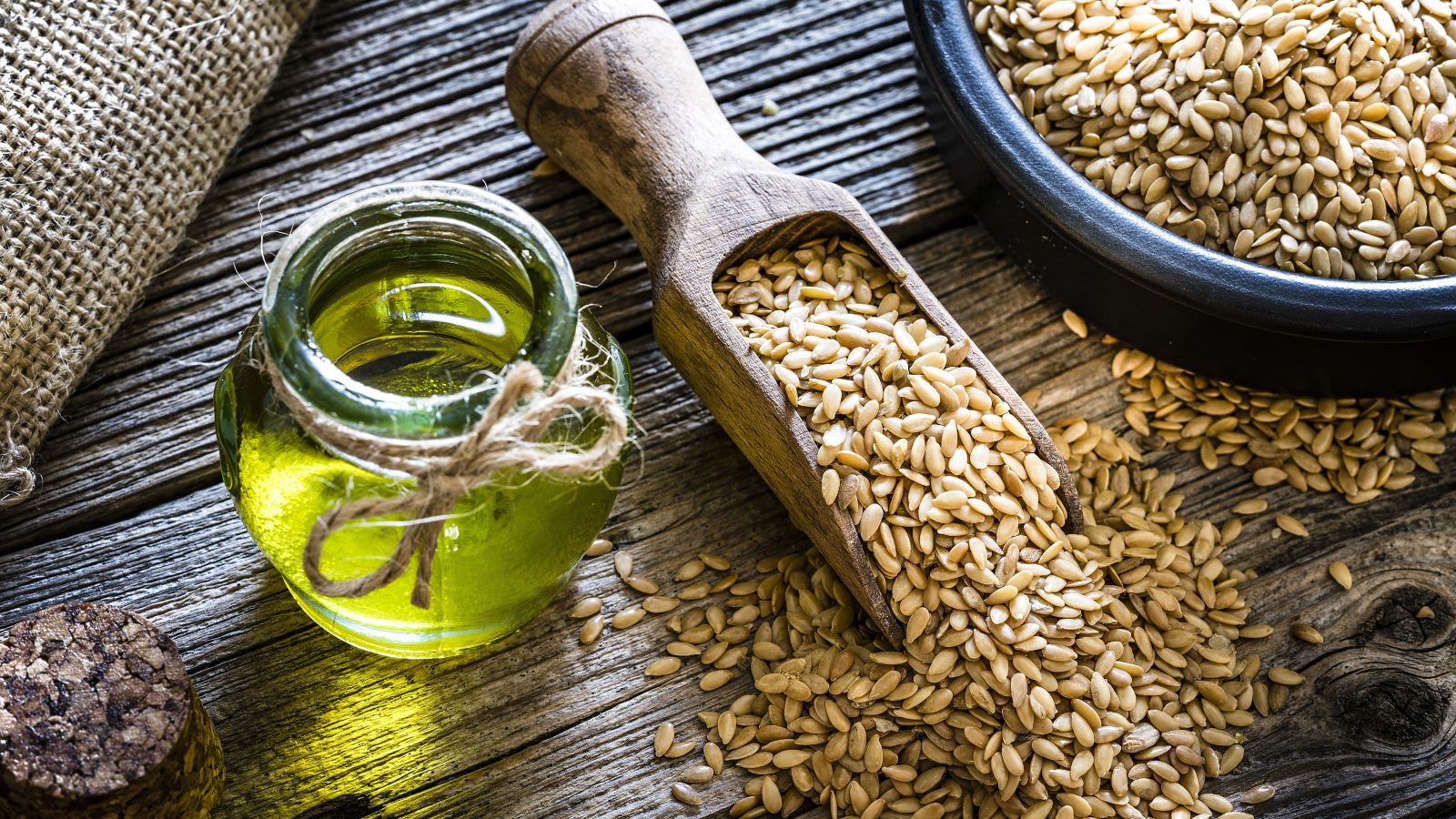<< Back
7 Healthy Seeds to Add to Your Diet

May 27, 2024
Whether you eat them by the fistful or sneak them into your smoothie, seeds are a great addition to any healthy diet.
But with so many choices, which should you be reaching for?
We asked a dietitian to go through some of the most popular options and the benefits these healthy seeds offer.
1. Flaxseeds.
Loaded with protein and fiber, flaxseed is an easy way to pack extra nutrients into your next meal.
“Adding flaxseeds to your diet is a great way to get essential minerals,” says Katryna Deogburn, MS, registered dietitian nutritionist at Backus Hospital. “These include fiber, copper, magnesium, selenium and fiber.”
These help with:
- Red blood cell formation
- Energy production
- Thyroid and immune health
Plus, the fiber and omega-3 fatty acids can help lower both LDL (often called “bad”) cholesterol levels and inflammation.
Not sure how to incorporate flaxseeds in your next meal?
“Ground flaxseed offers the most nutrients, and can easily be added to meatballs, hamburgers or pizza crust. They can also be sprinkled on yogurt, cottage cheese or peanut butter, or mixed into oatmeal,” Deogburn adds.
Flax oil is another common option, which can be easily mixed into your favorite salad dressing.
> Related: Nutrition Smack Down: Healthiest Nuts
2. Chia seeds.
Want to reach your fiber goals with just a few bites? Chia seeds might be the answer.
“Chia seeds have tons of fiber – approximately 10 grams in only two tablespoons. This is about a third of the daily recommendation for adults,” says Deogburn.
Fiber helps with digestive health, constipation, and satiety, helping you feel full for longer.
“The soluble fiber in chia seeds takes longer to break down, which helps prevent the blood sugar spike that typically comes after a meal. It also binds to cholesterol in the digestive system, and helps remove it from your body.”
And if that’s not enough, chia seeds also help with heart health, inflammation and brain health.
“Chia seeds have a neutral flavor and can act as a thickener. This makes it a great addition to pudding, jam, overnight oats or even salad dressing,” says Deogburn.
3. Pumpkin seeds.
Also called pepitas, pumpkin seeds make a filling and nutritious snack.
“These are particularly high in minerals like magnesium, iron and zinc,” says Deogburn. “Just one ounce of pumpkin seeds can provide about a third of your recommended daily magnesium intake.”
Magnesium offers benefits like:
- Bone health
- Improved muscle function
- Energy production
- Blood sugar management
- Heart health
- Stress management
- Sleep quality
“I love to just eat pumpkin seeds plain as a snack,” Deogburn says. “But with their bright green color, they also make a perfect garnish for soups, casseroles or even baked goods.”
4. Sesame seeds.
Not a fan of dairy? Sesame seeds offer a convenient way to get more calcium in your diet.
“Just one ounce of sesame seeds contains more than 20% of your recommended daily calcium intake. This makes sesame seeds a good option for anyone following a vegan diet, or with dietary restrictions that limit their dairy intake,” says Deogburn.
With a nutty flavor, sesame seeds are often toasted.
“I also like to sprinkle them into stir fry dishes, or grind them into a spread like tahini,” she adds.
5. Sunflower seeds.
High in vitamin E, sunflower seeds are a great source of antioxidants.
“Vitamin E can prevent oxidative cell damage,” says Deogburn. “This is a precursor to many chronic health conditions such as heart disease, diabetes, cancer, Alzheimer’s and Parkinson’s Disease.”
Vitamin E is also known for its role in promoting immunity and supporting skin health.
“Sunflower seeds aren’t just for baseball players – they’re also a versatile topping for meals and snacks. They add a crunch texture and nutty flavor to salads, yogurt, oatmeal and baked goods. When made into a paste, they also offer an allergy-friendly alternative to nut butters.”
But keep an eye on the serving sizes. Often prepared with added salt, some sunflower seeds can be high in calories.
6. Hemp seeds.
This versatile plant-based protein makes a great option for anyone avoiding meat.
“Hemp seeds are a complete protein, meaning they contain all nine essential amino acids which the body needs but can’t make. A one ounce serving offers about 10 grams of protein,” Deogburn notes.
Try blending these into smoothies, protein balls or any whole grain dish like brown rice or quinoa.
“Hemp milk is also a popular dairy free alternative, which slightly more protein than most nut milks,” she adds.
7. Watermelon seeds.
Recently gaining popularity among the health-conscious, watermelon seeds make a perfect allergy-friendly nut alternative.
“They have a similar profile as the other seeds,” says Deogburn. “They’re high in protein, healthy fats and other important nutrients.”
And if watermelon seeds don’t sound appealing to you?
“If you’re looking for a quick savory treat, try roasting them with some light seasonings. For a sweeter snack, grind them into a butter to enjoy with whole wheat toast or fruit slices.”